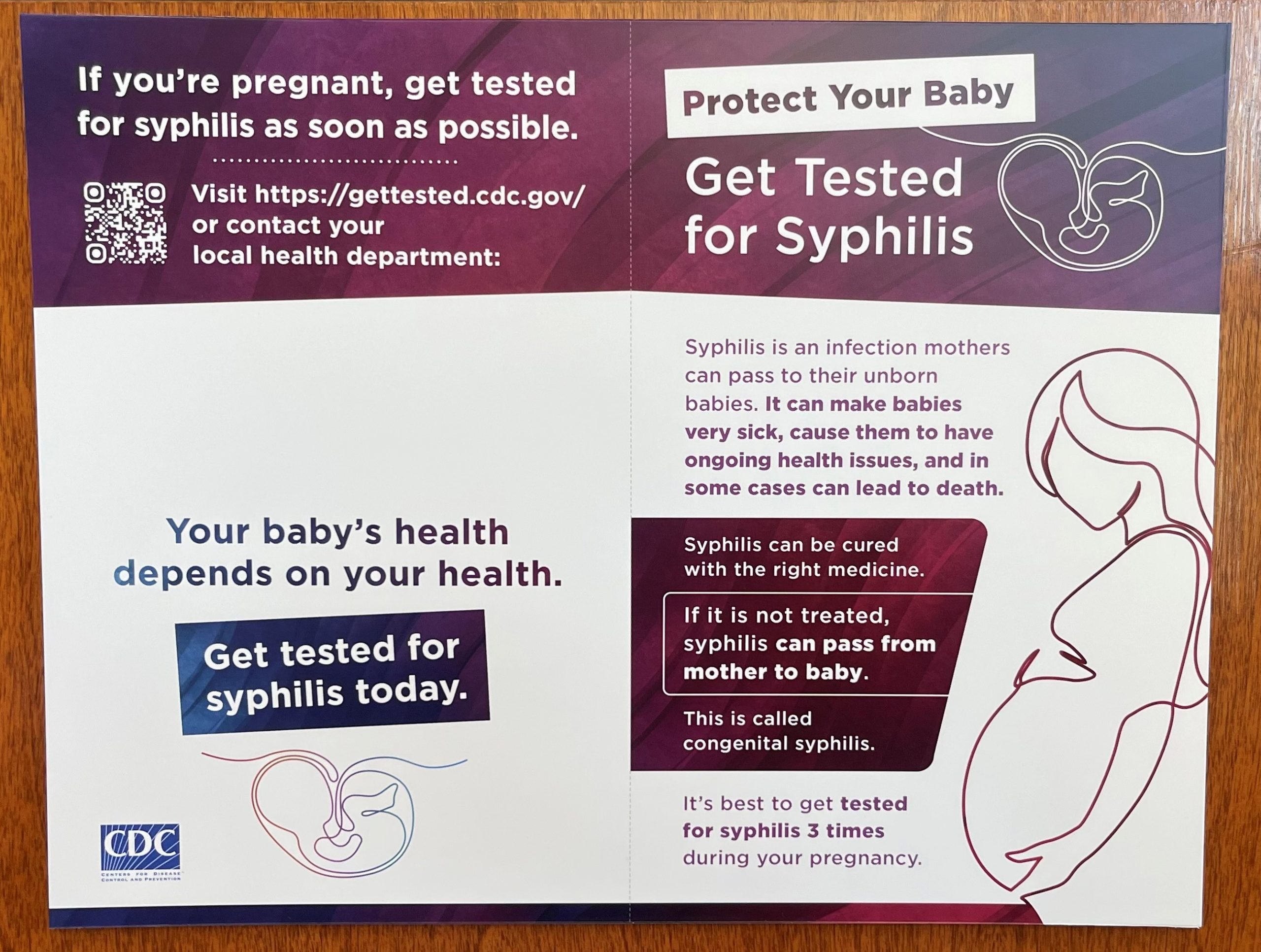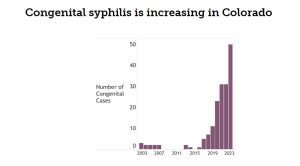Congenital Syphilis cases on the rise in Colorado; EPH is prepared for more frequent testing of pregnant women

Estes Park Health is participating in a statewide push to save the lives of babies at risk due to persistent and sharp increases in congenital syphilis (CS).
According to official records, from 2018 to 2023, congenital syphilis cases increased more than seven times in Colorado (seven cases in 2018 to 50 cases in 2023). So far in 2024, there have been 25 reported congenital syphilis cases, including five stillbirths and two neonatal deaths.
You will notice new signs around Estes Park Health outlining the latest recommendations for testing expectant mothers.
Syphilis is a highly contagious sexually transmitted disease (STD). It is a bacterial infection characterized by painless sores on the genitals, rectum, or mouth.
Congenital syphilis is a disease that occurs when a baby gets syphilis from their mother during pregnancy or a vaginal birth.
On April 18, 2024, the Colorado Department of Public Health & Environment issued a Public Health Order (PHO) that increases testing of pregnant women at the following points in their pregnancy:
- During their 1st trimester, between 1-12 weeks
- At their initial prenatal visit
- During their 3rd trimester, between 28-32 weeks
- At time of delivery
- Any fetal death after 20 weeks gestation
- When a patient who is pregnant presents to an urgent care center or emergency room
Estes Park responded immediately to the PHO by forming a task force to ensure compliance with the orders. EPH made all providers aware of a suggestion for testing that will automatically come up at emergency room and urgent care visits with pregnant patients.
EPH outpatient clinic leaders and providers have also been made aware of the PHO and its requirements. So, every pregnant patient at any intake point in our system will be offered testing and education on why we are asking them. We are also tracking each patient to determine three things:
- Whether they were offered testing
- Whether they accepted and were tested
- Whether they declined
Most often the answer is that they want to consult with their Primary Care Physician or OB/GYN first.
“Regarding the treatment for syphilis, EPH has spent $10,000 to increase the standard supply of penicillin should a shortage occur by the manufacturer,” said Michael Ryon, Interim Infection Prevention RN in the Quality Department at EPH. “Penicillin is the treatment of choice, and a small percentage of the population is allergic to penicillin. Considering that fact, EPH has implemented penicillin allergy desensitization protocols should this be required so we can safely treat those patients.”
Furthermore, Estes Park Health has created forms for those who decline the test to track our progress. Should we find that a patient is pregnant, opts to test and has a positive result, Infection Prevention will report these findings to the Colorado Department of Public Health & Environment.
Here are some ways in which CS can affect babies:
- Miscarriage: Some babies may be lost during pregnancy due to untreated syphilis
- Stillbirth: Babies born dead due to syphilis infection
- Prematurity: Babies born early
- Low birth weight: Babies with CS may have lower birth weights
- Death shortly after birth: Newborns with untreated syphilis may die from the infection
- Deformed bones: CS can cause bone abnormalities
- Severe anemia: Low blood count
- Enlarged liver and spleen: Organs affected by the infection
- Jaundice: Yellowing of the skin or eyes
Testing is important since syphilis can be a sneaky disease. The infection can be carried for years, and some symptoms may go unnoticed. The Centers for Disease Control and Prevention (CDC) recommends retesting pregnant women who live in places with high rates of syphilis (or who are at increased risk) at 28 weeks and again at delivery.

From 2018 to 2023, congenital syphilis cases increased more than seven times in Colorado. (Graph courtesy of CPDHE)


